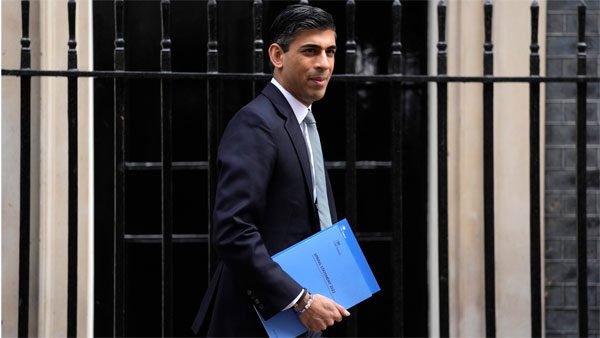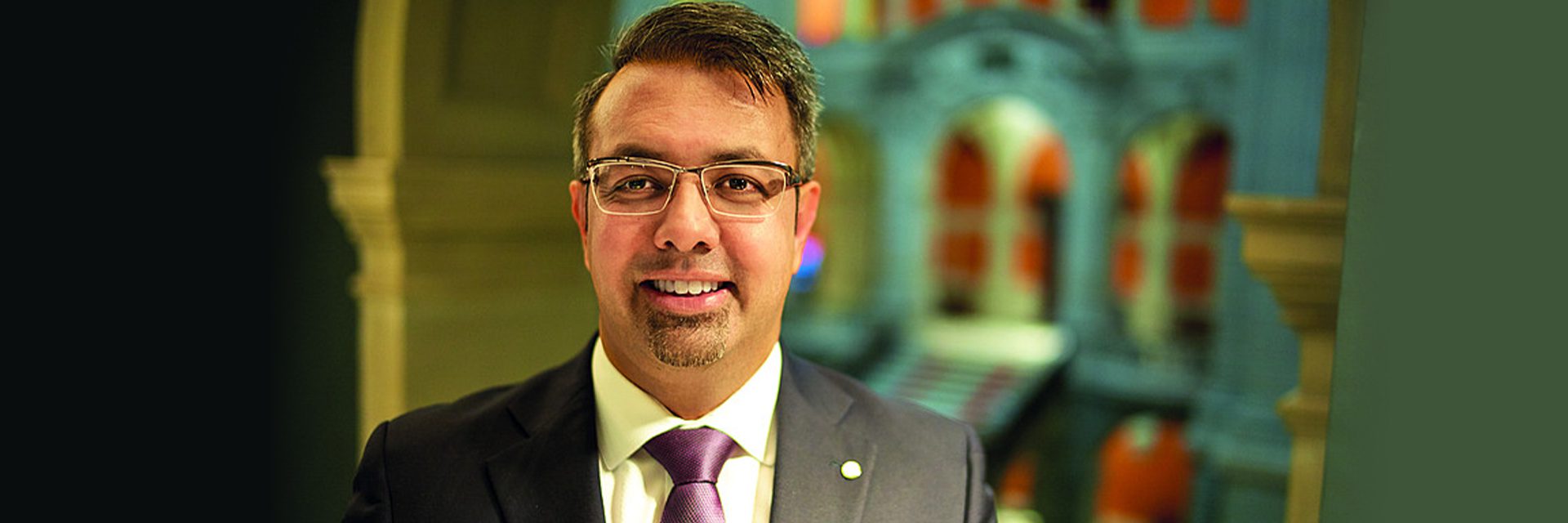(July 16, 2022) “Rishi is one of the most decent, straight people with the highest standards of integrity I have ever met in British politics.” Former foreign secretary Jeremy Hunt, who was one of the candidates eliminated in the first round of voting on July 13, threw his weight behind former Chancellor of the Exchequer Rishi Sunak, for whom he was full of praise. With Priti Patel bowing out of the Prime Ministerial race and Attorney General Suella Braverman winning a paltry 27 votes in the second round of voting, Conservative Party MP Rishi has emerged as the Indian-origin strongman, topping the first round with 88 votes. Global Indian takes a look at Rishi’s life and his rise in politics.
A glowing article in The Tatler, describes Rishi from his days waiting tables at an Indian ‘curry house’ named Kuti Miah. The restaurant’s owner was friends with Rishi’s parents, Yashvir and Usha. Which is not to say that Rishi Sunak comes with a tear-jerker of a rags-to-riches, immigrant in the UK origin story. Far from it. Born to a physician father, while his mother ran a pharmacy, his life was decidedly upper-middle class. Far from his exotic, immigrant status giving him a leg-up, Rishi’s upper crust life has made him ‘less relatable’ among the hoi polloi, which could prove to be a disadvantage. What’s more, the re-emergence of an old clip, in which he says, “I have friends who are aristocrats, I have friends who are upper class, I have friends who are, you know, working class, but… well, not working class,” could hamper his prospects. However, for a man who has overcome great odds as a candidate of colour in a conservative party, it might not be too big a hurdle to overcome.

Rishi Sunak. Photo credit: Rishi’s website
Despite early hurdles, Rishi was quickly picked out as a rising star – according to The Tatler, this quality was spotted early on, even by his former boss at Kuti Miah. That year, in 1998, as the then 18-year-old Rishi was all set to enter Oxford University, his boss remarked, “You’re going to be someone, Rishi.” Sure enough, the fiercely patriotic young man, who grew up, thanks to his parents, immersed in the local community, never looked back.
Head boy to hedge funds
His broad grin, which he flashes generously, belies the seriousness that lies beneath – Rishi’s flawless record goes back a long way, he was Head Boy at Winchester College, an independent boarding school for boys and also editor of the school paper. He went on to read Philosophy, Politics and Economics at Lincoln College, Oxford, where he first dipped his toes in politics, as an intern at the Conservative Campaign Headquarters. He graduated in 2001, which was also the year he gave the fateful interview about his ‘working class friends’ to Middle Classes: Their Rise and Sprawl.
After graduating from Oxford in 2002, Rishi joined Goldman Sachs, where he worked for three years as an analyst. He, then, moved onto The Children’s Investment Fund Management, a hedge fund firm and became a partner in 2006. That year, he moved to America to get his MBA from Stanford University, as a Fulbright Scholar.
It was at Stanford that Rishi would meet his future wife, Akshata Murty, daughter of Infosys co-founder Narayan Murty, marrying her in 2009. As the media is only too happy to point out, the couple is the 222nd richest people in Britain, with a combined fortune of £730 million as of 2022.

Rishi Sunak with his wife, Akshata Murty
In the political fray
Rishi’s entry into politics began in 2015 when he won the constituency of Richmond, North Yorkshire in the general elections, becoming the Conservative Party’s rising star almost instantly. His entry, however, was not well-received by other conservative candidates, who resented this apparent upstart claiming territory they believed to be theirs. His victory was even more noteworthy because he contested “as a rank outsider,” according to the Business Standard, “in the 97 percent white, prosperous rural Conservative bastion of Richmond in Yorkshire, where, the joke goes, there has been no immigration since the Norman conquest in 1066.” However, his right-wing economic views – Rishi is an enthusiastic believer in free markets and a vocal critic of Brexit – helped him secure a historic win.
In 2018, Rishi was inducted in the UK government by then British Prime Minister Theresa May. At 37, Rishi was a Conservative party MP (Richmond, Yorkshire) with great promise, entering the government as the parliamentary-under-secretary of state in the Ministry of Housing, Communities and Local Government. Incidentally, he was joined by another Indian-origin MP, also a pro-Brexit campaigner – Suella Braverman, who was Suella Fernandes at the time.
Rishi went on to make several contributions in the House of Commons, on issues like digital economy, social mobility and foreign direct investment. “From working in my mum’s tiny chemist shop to my experience building large businesses, I have seen how we should support free enterprise and innovation to ensure Britain has a stronger future,” Rishi told the media back in 2018.

On a sticky wicket?
As a conservative candidate of colour, Rishi Sunak’s position is always likely to be precarious. Will he usher in a post-race era, or speak up for the hyper-local, ethnic problems that minorities face in the UK? Always fiercely patriotic, his loyalty to the UK cannot be called into question. However, he remarked, to the Business Standard, “British Indian is what I tick on the census, we have a category for it. I am thoroughly British, this is my home and my country, but my religious and cultural heritage is Indian, my wife is Indian. I am open about being a Hindu.” Although he is given to phrases like “Oh crikey,” he does speak a smattering of Hindi and Punjabi.
In 2019, Rishi became the first Indian-origin to be named Chancellor of the Exchequer, taking over 11 Downing Street as one of the most powerful people in England. His term was, admittedly, fraught with controversy – he was charged with breaking lockdown laws, for instance. And the debate around wife Akshata Murty’s non-dom status (it exempted her from paying some ₹196 crore in taxes) continues to rage on.
On July 5, 2022, Rishi resigned from his post as Chancellor of the Exchequer, withdrawing support from PM Boris Johnson over a sexual harassment scandal within the government. He did, however, refuse to badmouth Boris, calling him, “one of the most remarkable people I’ve ever met.” He said, in no uncertain terms, that “he would have no part in a rewriting of history that seeks to demonise Boris.” With that final, noble gesture preceding his entry into the prime ministerial fray, perhaps Rishi Sunak will have his own chance at rewriting history after all.



